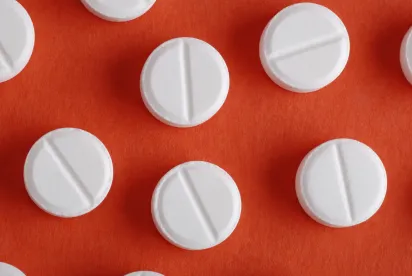King Drug Company of Florence, Inc. v. Smithkline Beecham Corp. d/b/a GlaxoSmithKline
Addressing for the first time whether reverse settlement agreements involving non-cash consideration merit antitrust scrutiny, the U.S. Court of Appeals for the Third Circuit reversed the district court, applying the reasoning set forth in the Supreme Court’s Actavis decision to hold that non-cash payments were subject to the same rule of reason analysis as cash payments. King Drug Company of Florence, Inc. v. Smithkline Beecham Corp. d/b/a GlaxoSmithKline, Case No. 14-1243 (3rd Cir., Jun. 26, 2015) (Scirica, J).
The plaintiffs are direct purchasers of Lamictal, a brand-name drug used to treat epilepsy and bipolar disorder, from defendant GlaxoSmithKline (GSK). GSK developed Lamictal and held a patent for its active ingredient, lamotrigine.
In 2002, the defendant Teva sought U.S. Food and Drug Administration (FDA) approval to market generic lamotrigine. Under the Hatch-Waxman Act, pharmaceutical manufacturers may apply for approval of new drugs shown to be “bioequivalent” to drugs that have been previously approved, using an abbreviated approval procedure (Abbreviated New Drug Application, or ANDA). Hatch-Waxman provides significant incentives for these generic manufacturers to challenge weak or invalid patents relied upon by brand-name manufacturers. A generic manufacturer who is first to file an ANDA and who certifies that the relevant brand-name patents are invalid or will not be infringed by the proposed generic enjoys a 180-day exclusivity period vis-à-vis other potential generic entrants. The brand-name manufacturer, however, is permitted to market an authorized generic during this 180-day period.
Teva’s ANDA filing triggered a patent infringement litigation with GSK. The district court ruled in Teva’s favor with respect to GSK’s main patent claim. In 2005, before the district court could rule on remaining claims, GSK and Teva settled the litigation. Under the terms of the settlement, GSK agreed to allow Teva to enter the market with less popular generic chewable lamotrigine tablets 37 months prior to expiration of GSK’s patent. For regular tablets, GSK’s blockbuster product worth $2 billion, Teva would be allowed to enter the market six months prior to the expiration of the patent. GSK also agreed not to market an authorized generic (a “no-AG agreement”) until Teva’s 180-day exclusivity period expired.
In 2012, a putative class of direct purchasers sued GSK and Teva, alleging that their settlement violated Section 1 of the Sherman Act by conspiring to delay generic competition for Lamictal tablets and Section 2 by conspiring to monopolize the chewable lamotrigine tablet market. GSK and Teva moved to dismiss, claiming that, pursuant to the 3rd Circuit’s decision in In re K-Dur Antitrust Litigation, only cash payments constituted actionable “reverse payments.” The district court granted the motion. On appeal, the 3rd Circuit stayed the proceedings pending the Supreme Court’s decision in Actavis, ultimately remanding the case back to the district court for further consideration. On remand, the district court concluded that Actavis only required antitrust scrutiny in reverse payment patent settlements that involve an exchange of money and not in cases that involve other types of consideration. The plaintiffs again appealed to the 3rd Circuit.
The 3rd Circuit reversed, concluding that under Actavis a no-AG agreement, such as the one in question here, should be subject to antitrust scrutiny under the rule of reason analysis (as was applied) in order to determine whether a reverse payment settlement “could have an anticompetitive effect or, alternatively, whether it was reasonable compensation for litigation costs or the value of services.” As the Supreme Court explained in Actavis, unjustifiably large payments may suggest the patent holder sought to buy out the challenger to avoid the risk of competition. Applying that logic to the instant case, the 3rd Circuit concluded that no-AG agreements likely present the same concerns as cash payments. The court emphasized that an agreement not to offer an authorized generic “may be of great monetary value to . . . a first-filing generic.” For example, in Actavis the Supreme Court recognized that the 180-day exclusivity was potentially worth several hundred million dollars. Similarly, in this case, Federal Trade Commission and amici briefs suggested that the Lamictal no-AG agreement was potentially worth hundreds of millions of dollars to Teva.
The defendants argued that no-AG agreements are distinguishable from reverse payments because they are essentially exclusive licenses, expressly permitted under patent law. But the 3rd Circuit disagreed, emphasizing that the issue was not whether patent holders had the right to license their patents, but rather the specific terms of those licenses. The right to grant licenses did not include the “right to give a challenger a license along with a promise not to produce an authorized generic—i.e., a promise not to compete—in order to induce the challenger” to settle litigation.




 />i
/>i

